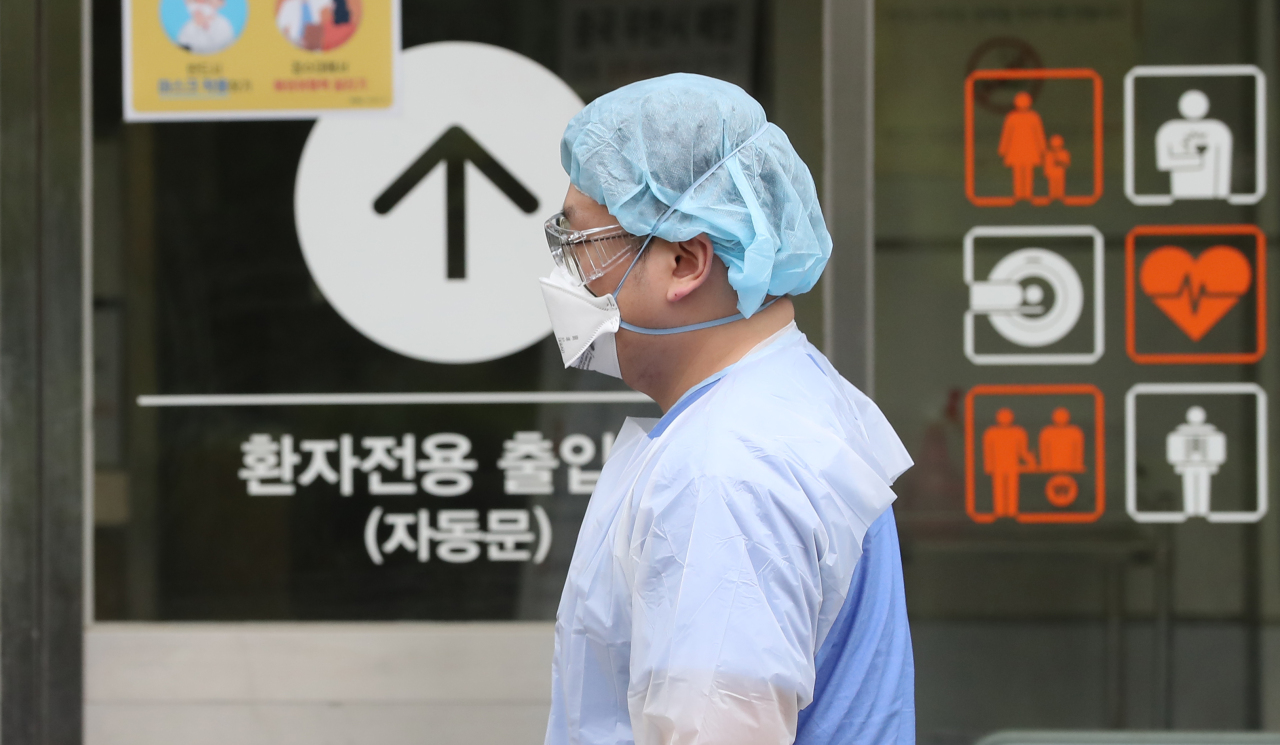Korea is at a critical moment in its struggle to prevent a second wave of coronavirus infections, as a virus breakout at clubs and bars in a popular Seoul nightlife area threatens to turn into a wider spread into communities.
Korea reported 29 additional cases of the novel coronavirus on Thursday, bringing the total number of infections in the country to 10,991, according to the Korea Centers for Disease Control and Prevention.
Of the new cases, 20 were traced to establishments in Seoul’s popular nightlife spot Itaewon, taking the total tally to 133 as of noon Thursday.
Health authorities believe that primary infections stemming from Itaewon hit their peak Sunday, and the virus is now being passed onto family members, friends and neighbors from those infected.
“This weekend could be a very critical time as (the primary infections) can lead to mass community transmissions,” Kwon Joon-wook, deputy director of the KCDC, said at a daily virus briefing.
He warned that asymptomatic patients may act as unsuspecting virus carriers in the community, spreading the pathogen to vulnerable groups such as the elderly and those with underlying diseases.
More than one-third of the Itaewon-linked 133 infections so far did not show any symptoms at the time of diagnosis, government data shows.
The cluster first emerged on May 6 when a 29-year-old Korean man from Yongin, Gyeonggi Province, tested positive for COVID-19 after visiting five different clubs and bars in Itaewon on the night of May 1 and the wee hours of May 2.
“Primary infection cases are on a downward trend after hitting its peak on May 10, but we need close monitoring for a few more days as secondary and tertiary infections are suspected in some cases,” Yoon Tae-ho, a senior Health Ministry official, said in a press briefing.
Secondary infections are occurring nationwide, mainly in the metropolitan area, and tertiary infections are being confirmed after a series of transmissions from a 25-year-old teacher in Incheon.
“The prevention of the spread of secondary infections depends on how citizens comply with ‘everyday distancing’ rules,” Yoon said.
The new rules refer to preventative guidelines that the government set out to help people return to normal life following the relaxation of six weeks of social distancing.
Of the 133 people linked to the Itaewon cluster, 82 had visited Itaewon and the others were those who had close contact with those people.
Areas hit harder by the new outbreak were Seoul, Gyeonggi Province and Incheon with 73, 25 and 18 cases, respectively. South Chungcheong Province and Gangwon Province reported their first cases traced to Itaewon.
Aggressive testing, with 35,000 people linked to the Itaewon cluster tested nationwide, has shed light on the detection of cases related to night outings to bars in other areas.
Five people who visited two popular bars near Hongik University -- Hanshin Pocha and 1943 -- were confirmed to have contracted the virus.
A man in his 20s tested positive Tuesday, and four others who accompanied him received the same results the following day, according to Seoul city official Na Baek-ju.
They had no history of visits to Itaewon or of travel overseas.
An epidemiological investigation is underway to discover 10 more people who had come into close contact with the group.
Three foreign nationals and one Korean man have tested positive after visiting Damotori 5 bar in Seoul’s Sinchon. The foreign nationals had also been to Itaewon. The city directed 199 related to the spot to isolate at home.
The country’s 15 cities and provinces have tightened restrictions on the nightlife industry and services to comply with containment measures, prohibit assembly of people or suspend operations temporarily.
Municipal governments along with police formed inspection teams, consisting of over 1,600 personnel, for interim spot checks in the late night from May 9.
As a result, 23 sites were spotted to have breached shutdown orders directed by respective municipal governments, according to the Health Ministry.
Yoon said the government is considering adopting high-tech maneuvers such as QR codes and Bluetooth to replace the lists of names and contact details that people have been required to write down before entry to clubs and other entertainment locations.
The move comes as the country struggles to locate the whereabouts of around 2,500 people connected with the Itaewon outbreak for testing. Some of them presented a false name or phone number for such lists.
For example, telecom carriers could issue a digital card that contains a QR code or barcode so that people can scan it when entering clubs.
“We are searching for ways to temporarily collect certain information of individuals within the legal framework like privacy protection,” the official said.
By Park Han-na (
hnpark@heraldcorp.com)






![[Exclusive] Hyundai Mobis eyes closer ties with BYD](http://res.heraldm.com/phpwas/restmb_idxmake.php?idx=644&simg=/content/image/2024/11/25/20241125050044_0.jpg)
![[Herald Review] 'Gangnam B-Side' combines social realism with masterful suspense, performance](http://res.heraldm.com/phpwas/restmb_idxmake.php?idx=644&simg=/content/image/2024/11/25/20241125050072_0.jpg)
